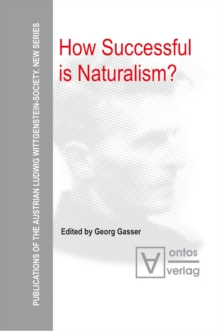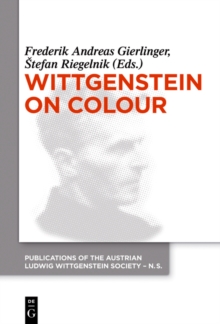
Phenomenology as Grammar PDF
Edited by Jesus Padilla Galvez
Part of the Publications of the Austrian Ludwig Wittgenstein Society - New Series series
Description
This volume gathers papers, which were read at the congress held at the University of Castilla-La Mancha in Toledo (Spain), in September 2007, under the general subject of phenomenology. The book is devoted to Wittgensteins thoughts on phenomenology. One of its aims is to consider and examine the lasting importance of phenomenology for philosophic discussion. For E. Husserl phenomenology was a discipline that endeavoured to describe how the world is constituted and experienced through a series of conscious acts. His fundamental concept was that of intentional consciousness. What did drag Wittgenstein into working on phenomenology? In his 'middle period' work, Wittgenstein used the headline 'Phenomenology is Grammar'. These cornerstones can be signalled by notions like language, grammar, rule, visual space versus Euclidean space, minima visibilia and colours. L. Wittgensteins main interest takes the form of a research on language.
Information
-
Download - Immediately Available
- Format:PDF
- Pages:224 pages
- Publisher:De Gruyter
- Publication Date:02/05/2013
- Category:
- ISBN:9783110328998
Information
-
Download - Immediately Available
- Format:PDF
- Pages:224 pages
- Publisher:De Gruyter
- Publication Date:02/05/2013
- Category:
- ISBN:9783110328998










